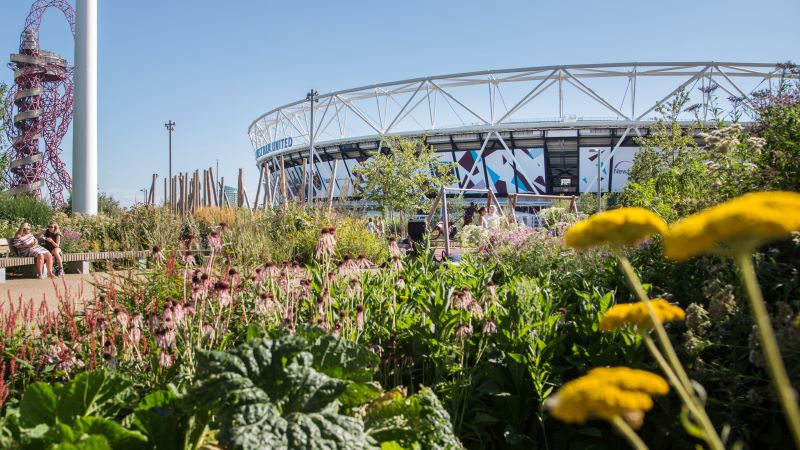
Sean Ripley
Principal Ecologist
Consultancy, UK & Europe
Built environment work can significantly impact the animals and plants we share the earth with, as well as their environments. Every development is a piece of the biodiversity puzzle and Sean Ripley, Mace’s Principal Ecologist, uses his passion for ecology and intervenes early in the development design phase to solve it, ensuring that the built and natural environments are in harmony.
- What does an ecologist do, and why is it important in our business?
-
An ecologist investigates how creatures, plants, and their habitats interact. As an ecologist at Mace, my role is to offer a variety of services, from baseline ecological surveys to pre- and post-planning advice to support our clients. I strongly believe that every single development we work on is a piece of the wider puzzle for biodiversity conservation. As we are currently in the midst of a global biodiversity crisis due to factors such as land use change, exploitation of wildlife (through a number of unsustainable management practices), and pollution, it is vital we take action to progressively halt and reverse our impact on nature through our development work, value chain, operations, and ambition.
- How did you get into what you do?
-
My journey began in my childhood, growing up in South Africa. My grandfather was a professional wildlife photographer, and I was fortunate enough to accompany him on safaris and journeys across Africa. We would travel three or four times a year to different game parks around the continent, where I started to observe and learn about various aspects of nature, including different species and how habitats and ecosystems functioned. Naturally, through experiences my curiosity about our impact on the environment was sparked early on. From there, it was a natural progression – I went to university to study my passion in Zoology and Aquatic ecosystems, which led to a consultancy job as an ecologist.
- What do you enjoy most about your current role at Mace?
-
I feel like I’m in a position to make a positive impact on our large-scale development projects and the attitude our sector has towards the toll it can take on biodiversity. There’s still a slight negative view when it comes to considering ecology in the context of developments and construction. It’s often seen as a roadblock or a hurdle to overcome – together we need to change that perspective because we are in the midst of a global biodiversity crisis.
- If you could give one bit of advice to developers or our clients with regard to the work that you do, what would it be?
-
It’s quite simple – engage early! The earlier our stakeholders engage with an ecologist, the less they need to worry about ecological risks later in the process. With new and evolving legislation, such as Biodiversity Net Gain (BNG) in England, there is the ever-present risk of not meeting requirements. This could even prevent a planning authority from granting permission for development.
Further, if ecological shortfalls are uncovered late in the timeline, it could increase costs. Often, developers are tempted to proceed with landscape design and come up with several iterations, only to discover they need to reprogram construction or rework the planning application because there are too many ecological impacts or they don’t have the necessary licenses in place. Engaging early ensures that environmental triggers and constraints of the site are identified and planned around.
- What has been your proudest achievement at Mace so far?
-
The rehabilitation of Fobbing Marsh with the Essex Wildlife Trust is a particular highlight. It is an ongoing project with Essex Wildlife Trust, which has seen the rehabilitation of drainage channels to improve water retention and enhance the habitat for local wildlife. I enjoy seeing how happy it makes them, particularly now that we’re seeing the fruits of the hard work that’s gone into the site. I’m proud to have had a small involvement in something like that, and it is great to see the contribution Mace has made.
On a personal note, I am also proud of developing Mace’s biodiversity net gain service offering. While it was quite a challenge to devise, it was a very proud moment when it was rolled out. We’ve received very positive feedback from clients. In fact, we’re in the process of going into Royal Institute of British Architects (RIBA) stage three on the first project to use this new service offering. The next step is to take it to planning and hopefully get it approved – if it does, then it’ll be among the first handful of plans approved under the new biodiversity net gain regulations in the UK.
- Why Mace?
-
I’ve worked in many multidisciplinary consultancies over the years, and I knew of Mace before moving to the UK. The initial discussion I had with our Biodiversity Lead and my boss, Neil Sherriff, was one of the strong selling factors – I knew from that conversation that, at Mace, I would have a very good work-life balance and great lines of communication. Additionally, the opportunity to work in London for a global company was a significant factor. Growing up in South Africa, the idea of working in London was something you thought only happened in movies, and having the opportunity to realise that aspiration was important. Now, when I talk to my friends back in South Africa and mention that I work in London, they respond with a number of interesting quips! They also question where the trees or large fauna is in London, which is what they naturally associate with ecology!
- What motivates you everyday?
- My partner, Sarah, plays a big part in motivating me. She’s an extremely ambitious, driven individual, and we’re naturally quite competitive when it comes to pushing each other forward. When she achieves something, it spurs me on even more. We are both very fitness-oriented, and I think that feeds into our drive and ambition in our respective lines of work. So, I have to give her a shout-out for the motivation she gives me.
- What skills do you need to be good at your job?
-
If you’re starting out as an appreciate, graduate or junior, you need to have an aptitude for understanding what’s happening in your environment. You need to understand the habitats and how the ecosystem functions and works together. A good base knowledge of species interaction and strong field identification skills are key. You need to be thorough, or you might miss important and protected species or invasive species that need to be managed.
From there, it’s all about developing your skills. You can specialise in areas like aquatics, botany, or small mammals – there are many different facets in ecology to explore. But having a solid grounding is the most important thing as a consultant ecologist.
- What are you passionate about outside of work?
- I’m passionate about sports in general. I'm a massive rugby fan, natural for any South African, and I’m also a big cricket fan and an avid cyclist. Outside of sport, I'm also a commercial drone pilot, so I sometimes fly my drone around and capture epic scenery shots, perhaps of a sunrise or sunset.

“There’s still a slight negative view when it comes to considering ecology in the context of developments and construction…together we need to change that perspective.”











